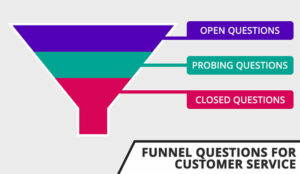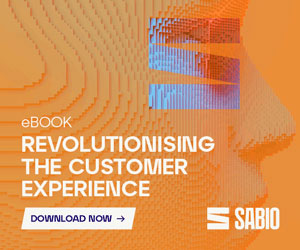Last week ProcedureFlow hosted a webinar with best-selling author and customer service expert Jeff Toister. Throughout the session, Jeff and ProcedureFlow VP of Product Management Micah Peterson tackled attendees’ customer experience questions, and went into detail on how to deliver a consistent customer experience.
There were so many great questions asked that they ran out of time on the live session to get to them all! Luckily, Jeff took the time to answer them below.
Question: How can I get my team to follow the processes and flows already put in place?
The key to getting agents to consistently follow processes is confirmation.
It’s not enough to tell an agent about a process or send them an email. You must confirm the following:
- The agent understands the process.
- The agent agrees to follow the process.
- The agent is able to follow the process.
Confirmation might come in the form of a conversation with an agent, watching the agent work, or evaluating a call.
Leaders should investigate two things to maintain consistency:
- Does the agent maintain good habits?
- Are there situations where the process doesn’t work?
Agents can sometimes get complacent, or forget to follow a process. They’ll develop a bad habit if they aren’t given timely feedback.
There are also situations where a standard process doesn’t make sense, or an agent discovers an even better way to do things. Regular dialogue with agents will help uncover ways to improve a process.
Question: How can I ensure agents are following up with customers in writing or checking in with them more frequently?
Forgetfulness is the most common reason we fail to follow up.
That’s why it’s best to have a reminder system. This could be in your customer service software, or a simple calendar reminder. The idea is to give the agent the ability to remind themselves to follow up.
Agents also need the time to make follow-up contacts. Be sure they have follow-up time included in their schedule.
Question: How can I ensure agents are more empathetic, and provide an appropriate level of empathy for the tone and scenario the customer is concerned about?
Empathy is the ability to understand what another person is feeling. It’s very difficult to empathize with someone if you’ve never been in their situation, so we have to help agents tap into their own life experiences.
Here’s an exercise that can help build empathy skills.
- Pick a situation where a customer was angry or upset.
- Ask the agent to imagine they are the customer. What are they upset about?
- Now ask the agent to think of a time when they experienced a similar feeling.
- Brainstorm ways to help someone in that situation feel better.
Question: How do you respond to guests who have unreasonable expectations? For example, a hotel guest expected the hotel to have a pool even though no pool is advertised.
A mentor once told me, “never make a customer feel dumb.” That’s very good advice here.
In the moment, start by listening to the guest. Try to understand the reason behind their request and why it’s important to them. For example, do they want a pool to cool off in the heat, give the kids a place to play, or just sunbathe?
Taking an extra moment to listen might uncover an alternative way to help them achieve their goal. Perhaps your hotel has a partnership with a local gym that has a pool (or can offer a discounted day pass).
Once you’ve spent time listening to them, it can also be helpful to ask respectful, probing questions to learn more. Present it as an opportunity for the customer to help you do better, and many customers will be willing to give feedback.
In many cases, these are not one-off incidents. Other customers have the same expectations, too.
This makes it important to use whatever feedback you can gain to prevent other customers from creating unreasonable expectations.
If you have access to LinkedIn Learning, you can learn more from this course on Managing Customer Expectations. (A 30-day trial is available.)
Question: What are things I can do to improve my team’s attitude and make sure they don’t take things personally?
Taking things personally is a natural, instinctive behavior. We can even “catch” a bad attitude from an upset customer or a disengaged coworker and display it to the next person we serve without even realizing it.
Fortunately, there are a few ways to help agents overcome this.
One is to be mindful about your attitude as a leader. You can’t expect your agents to display a positive attitude if you don’t set the example. A smile, words of encouragement, and a can-do attitude are contagious!
Another positive step is to help agents take ownership of challenging problems. Agents often display a bad attitude when they repeatedly deal with the same issue and feel helpless to do anything about it. Work closely with agents to help them become part of the solution.
Finally, help your agents discover their attitude anchors. An attitude anchor is something that can anchor your attitude in a positive place. Anchors vary from person to person, but common examples include a short walk, deep breath, picture of your family. You can learn more about attitude anchors from this short video.
Question: How can I ensure every call is answered with a smile as if it were the first call of the day?
I once conducted a study with a contact center that looked at customer satisfaction surveys by time of day. We found that agents consistently provided worse service in the afternoon.
The reason? It’s exhausting to serve customers with a smile plastered on your face for eight hours straight.
Disney theme parks provide a great lesson in how to overcome this.
You’ll notice that cast members (Disney’s term for employees) aren’t in any one station for too long. They frequently rotate. This prevents them from getting too stale.
Try the same thing in your contact center. Switch agents between channels. Give them time to do follow-up work or update knowledge base articles. Set aside some time for training.
Contact centers that do this are often surprised by an increase in both quality and productivity!
Another tactic is to make sure agents are taking breaks. Some contact centers give such short breaks that agents only have time to use the restroom and refill their water, leaving no time to simply rest.
Try experimenting with offering slightly longer breaks or more frequent breaks throughout the day. You can even encourage agents to take a micro-break, which is something short and simple such as standing up and stretching for 30 seconds.
Question: What are things I can do to improve the tone of emails sent by agents?

Jeff Toister
Start with your company’s brand style guide, if it has one. A brand style guide should specify the types of words and phrases that are “on brand” as well as language to avoid.
Make sure your agents understand the style guide, and use it to update any email templates you use.
Question: How can I improve response time (within one business day)?
Are you referring to email response time? If so, I have some bad news for you. Based on this survey of more than 3,200 consumers in the US, Canada, and the UK, companies should respond to customer emails within one hour.
So how do you manage that? There are a few things you can do.
First, track response time by team and agent. Just having the data will help you quickly spot issues.

Micah Peterson
Next, make sure agents can focus on email. Asking agents to respond to email in between phone calls has been show to reduce both quality and productivity.
Finally, make it easy for agents to respond thoroughly and quickly. That means using simple templates that can easily be personalized. It also includes giving agents a knowledge base where they can quickly access the answers to customer questions.
Author: Guest Author
Published On: 8th Apr 2021 - Last modified: 19th Jul 2022
Read more about - Guest Blogs, ProcedureFlow



































